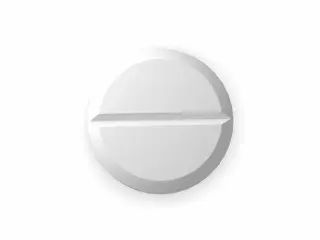Diuretics
Explore our selection of effective diuretics designed to help reduce fluid retention and support kidney health. Find trusted brands and formulations to aid in managing hypertension and edema. Shop now for fast relief and quality care.
Diuretics are medications that help remove excess salt and water from the body. They are commonly used to treat conditions like high blood pressure, heart failure, and edema. These drugs work by increasing urine production in the kidneys. This helps reduce fluid buildup and lowers blood pressure.
One of the well-known diuretics is Aldactone (spironolactone). Aldactone is a potassium-sparing diuretic. It prevents the body from losing too much potassium while promoting the removal of sodium and water. This makes it a popular choice for patients who need to avoid low potassium levels. Aldactone is often used for conditions like hypertension, heart failure, and liver cirrhosis-related edema. It also has applications for treating hormonal acne and certain cases of hyperaldosteronism.
Esidrix contains hydrochlorothiazide, a thiazide diuretic. Thiazide diuretics are commonly prescribed for high blood pressure and mild fluid retention. Esidrix lowers blood pressure by removing excess water and salt, which decreases the volume of blood vessels. It is favored for its long-lasting effect and has been used for decades. Side effects can include low potassium or dehydration, so patients need to monitor their electrolytes and fluid intake.
Furosemide, also known as Lasix, is a loop diuretic. Loop diuretics are very powerful and are used to treat severe fluid retention and swelling. They work by blocking salt and water reabsorption deep in the kidneys. Furosemide is fast-acting and highly effective. It’s often given in cases of heart failure, kidney disease, and liver disease. Due to its potent effect, patients on Lasix may need to check their potassium and kidney function regularly.
Lozol contains indapamide, which is another type of thiazide-like diuretic. It is prescribed for hypertension and edema caused by various health issues. Lozol lowers blood pressure and helps reduce swelling by removing excess fluid through urine. It is known for maintaining potassium levels better than some other thiazide diuretics, which can be an advantage for long-term use. Patients using Lozol should still monitor electrolytes to avoid imbalances.
Microzide is another hydrochlorothiazide brand. It is widely used in managing high blood pressure and fluid buildup. Microzide works by increasing the flow of urine, helping to eliminate excess salt and water. Patients appreciate its effectiveness and the relatively low cost. Like other thiazides, it may cause side effects such as dizziness, muscle cramps, or low potassium, so monitoring is necessary, especially at the start of treatment.
Each diuretic has unique properties and uses. Potassium-sparing diuretics like Aldactone are gentler on potassium levels but weaker in effect. Loop diuretics such as Furosemide are very strong but carry a higher risk of electrolyte disturbances. Thiazide and thiazide-like diuretics, including Esidrix, Microzide, and Lozol, offer good blood pressure control with moderate diuretic action. Physicians select the right drug based on the patient's specific condition, potassium needs, and response to treatment.
Common side effects across these medications include increased urination, dehydration, electrolyte imbalances, dizziness, and muscle cramps. Patients should stay hydrated and follow medical advice carefully. Regular blood tests are recommended to monitor kidney function and electrolyte levels during treatment. Avoiding excessive salt intake can improve the effectiveness of diuretics.
In summary, diuretics are vital in managing fluid-related and high blood pressure conditions. Brands like Aldactone, Esidrix, Furosemide (Lasix), Lozol, and Microzide cover a broad spectrum of treatment needs. With proper use, they contribute to better control of symptoms and improve overall health outcomes. Always consult a healthcare provider before starting or changing any diuretic medication.





